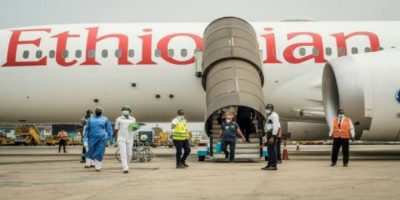Shortcomings in public education system analyzed, priority tasks identified

TASHKENT, – President of the Republic of Uzbekistan Shavkat Mirziyoyev held a meeting to discuss priority tasks in the public education system.
From the very beginning of his activity as President, the head of state has repeatedly noted the problem of personnel in our country and the need in almost all areas for modern specialists corresponding to a given pace of reform.
To this end, the entire education system is fundamentally improved. Preschool education is developing. Taking into account international experience and modern requirements, the quality of general secondary education is increasing.
Over the past three years, more than 160 secondary schools have been erected in the country. Such innovative educational institutions as Presidential schools, specialized schools named after our great ancestors, scientists, creative schools, and the Temurbeklar Maktabi school have been organized.
Along with this, over the past three years, teachers’ salaries have been increased by an average of 2.5 times. Extra charges have been introduced for teachers working in remote areas.
On 26 November 2019, the President of the Republic of Uzbekistan signed a decree “On measures to create “Modern schools”. The document defines the main parameters for converting at least 3 percent of general education institutions into “Modern Schools” by 2021, 20 percent by 2025, and 50 percent by 2030.
All this was the first stage of reforming the sphere in the medium and long term.
In his Address to the Oliy Majlis in January 2020, the President pointed out the need to improve school curricula based on international best practices, revising the teaching load and subjects studied, bringing them into line with international standards, improving the quality of textbooks and educational literature. The head of state set the task to improve the material and technical support of schools, to apply modern pedagogical technologies in the educational process.
At today’s meeting, the issues of building a new type of school and the phased modernization of existing teachers and continuing education were discussed.
Currently, out of 9,942 schools, 2,835 are in need of repair, in 5,861 schools, due to congestion, training is carried out in two shifts. This year, it is planned to build 36 new schools and overhaul 211.
The Ministry of Construction was instructed to ensure the construction of schools based on modern architectural achievements, using advanced energy-saving technologies.
Practical exercises in the laboratory play an important role in obtaining a quality education.
However, today 683 classes of physics, 897 classes of chemistry and 901 classes of biology do not have educational and laboratory equipment. The outdated equipment of 7,807 classes of physics, 7,776 of chemistry and 7,770 of biology. 62 thousand classes are not provided with modern equipment, 7 thousand computers are missing.
In this regard, it is required to equip school laboratories with new equipment and increase the number of classes in them. Accordingly, the ministries of public education and finance were instructed to critically examine the equipment of schools and provide them with modern laboratory, computer equipment, sports equipment and other necessary means.
The need for developing practical skills in teaching exact sciences and increasing attention to interactive classes was noted.
In schools, only 10 percent of the teaching time is allocated to practical classes in mathematics, chemistry, physics, and biology. In developed countries, this figure is 30-50 percent.
In this regard, the ministries of public education and the development of information technologies and communications have been given the task of widespread use of digital technologies, increasing the share of practical exercises in educational programs in the exact sciences.
Special attention at the meeting was devoted to issues of improving the knowledge and qualifications of teaching staff
It was noted that during last year’s certification, which was attended by nearly 57 thousand teachers and mentors, 43 percent of the attendees received low marks, and the national average was 64 points for a 100-point system.
Instructions are given on improving the system of advanced training for teachers and updating methodological support.
The importance of providing schools with fiction, giving new content to the lessons of music, fine art and physical education in primary grades with the aim of educating children spiritually and physically harmoniously developed individuals was emphasized.
Responsible persons provided information on the issues discussed at the meeting.
Related News

Norway crown princess’s son pleads not guilty to rapes as trial opens
OSLO, FEB 3: The son of Norway’s crown princess pleaded not guilty Tuesday to fourRead More

Flights resume to Ethiopia’s Tigray: tracking data
ADDIS ABABA, FEB 3: Flights resumed to Ethiopia’s northern Tigray region on Tuesday five daysRead More


Comments are Closed